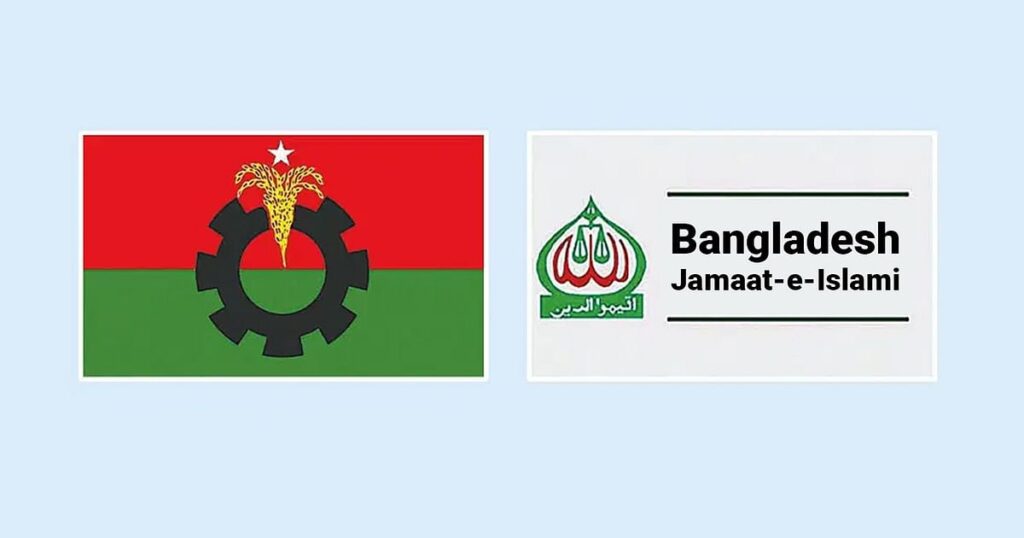Jamaat leader Abdullah Mohammad Taher believes that there is never a void in mainstream politics. Existing political parties will fill that gap. He told Prothom Alo that due to Awami League’s 15-year role, the party has lost appeal among the general public. He added that those who supported fascism within the party have fled, and those who did not are now aligning with the “two major parties.”
A question now arises about whether, in the event of a vacuum created by Awami League’s absence, Jamaat or Islamist groups will rise significantly if BNP comes to power. While BNP’s policymakers have not publicly stated their stance, they likely want Awami League to somehow remain in the elections to ensure a credible election process.
In this context, Jamaat and the Anti-Discrimination Student Movement have different positions. Jamaat demands the trial of Awami League, while the Anti-Discrimination Student Movement supports banning the Awami League. BNP leader Amir Khasru Mahmud Chowdhury clarified their stance, saying, “Our position is clear, we are not in favour of banning anyone. If I believe in democracy, then there is no alternative to elections.”
The recent contrasting positions of BNP and Jamaat have been called by their leaders as ‘differences of opinion’ or expressions of their respective party perspectives. However, political analysts believe that, as the situation unfolds, these ‘differences’ may eventually escalate into a severe conflict.
In the end, Professor Mahbubullah believes that if the two parties maintain their opposing positions and go to the polls, they will both be harmed. He said that Awami League’s participation in the upcoming election remains unclear, and even among those involved in the movement, there is increasing discord. A significant portion of their voters and supporters overlap, so it is uncertain how their relationship will evolve by election time.
*Selim Zahid, Special Correspondent at Prothom Alo

